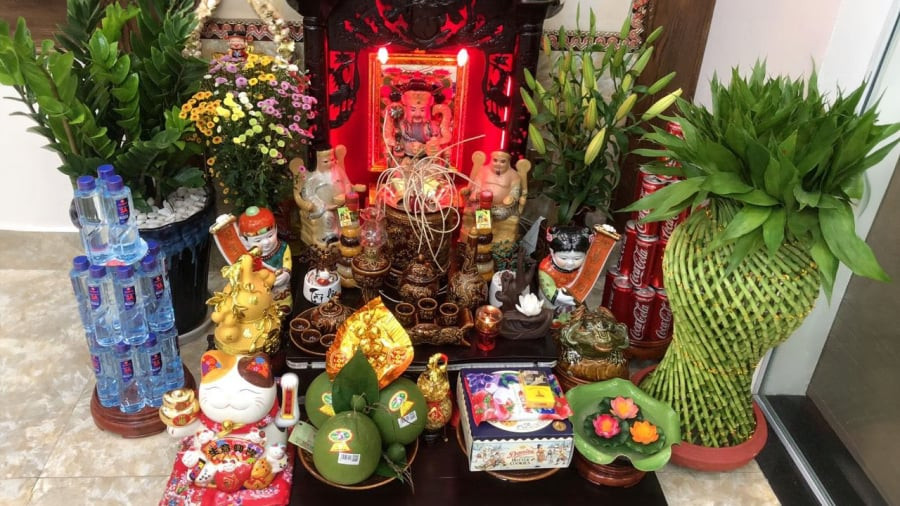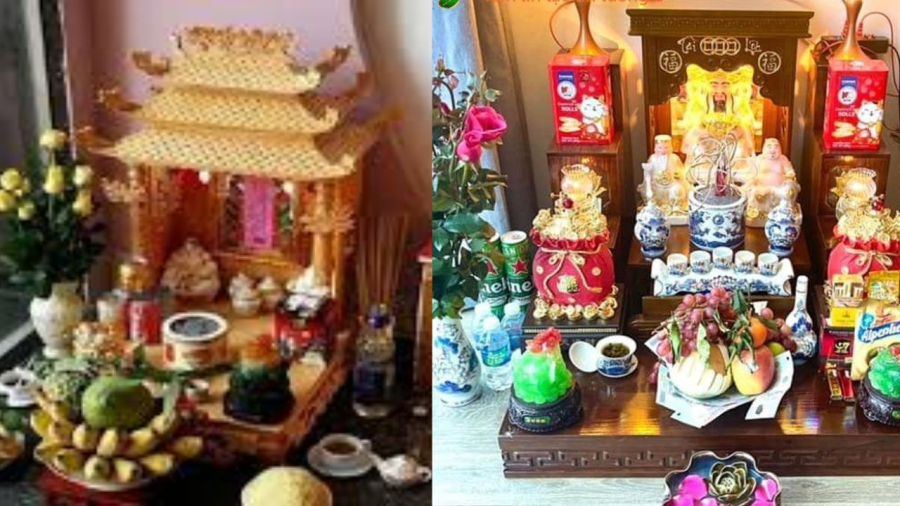Why is the God of Wealth altar placed underground?
Worshipping the God of Wealth is a common practice among businessmen and merchants. The altar is typically found in shops, businesses, factories, hotels, and companies. The God of Wealth is believed to bring fortune, prosperity, and success to those who pay homage to him. His favor is said to attract money like a flowing river; turning his back on you, however, could lead to financial ruin.
While ancestral and Buddhist altars are usually placed high up in a respectful and quiet location, the God of Wealth’s altar is positioned very close to the entrance…
The general rule for this altar is that it should not be hung high, and it must be placed where one can observe the comings and goings of guests. According to tradition, the God of Wealth altar must be ‘grounded’ and located on the ground floor if in a house or shop. It can be placed near the main door or on the balcony.

God of Wealth altar placed underground
The underground placement of the God of Wealth altar is likely related to the deity’s origin story. In one such tale, a businessman named Âu Minh received a maid named Như Nguyện from the Water God while crossing a lake. Âu Minh’s business prospered with Như Nguyện in his household, but his fortune took a turn for the worse when he angrily struck her, causing her to hide in a pile of garbage. As a result, he became impoverished. This tale suggests that Như Nguyện is the God of Wealth, which is why the altar must be grounded and situated in a corner, providing a dwelling for the deity. Despite being grounded, the altar’s area must be clean and free from dampness or mold.
Additionally, keep the following in mind when setting up the God of Wealth altar:
Choose the right direction: One of the taboos when worshipping the God of Wealth is facing the wrong direction. Homeowners should prioritize the Northwest direction (representing the Nobleman star, bringing peace and luck), the Southeast direction (representing the Star of Wealth, bringing monetary luck), and the four best constellations (Heavenly Doctor, Vitality, Longevity, and Position).

Pay attention to the placement of the God of Wealth altar to attract wealth
Positions to avoid for the God of Wealth altar: Do not place the altar below or directly across from a mirror, bathroom, sink, or area with bright lights. These positions are believed to desecrate the God of Wealth and affect spiritual energy.
The God of Wealth altar should also be kept separate from the ancestral altar to avoid spiritual conflict.
Arrange offerings correctly: According to ancient customs, when facing the altar from the outside, place a flower vase on the right and fruit on the left. Lucky flowers such as roses, money plants, and chrysanthemums are preferred, while lilies, orchids, and magnolias should be avoided. Keep the altar clean, dust regularly, and refrain from leaving stale offerings.
Burn incense daily: Business owners should burn incense every morning before opening and in the evening after closing.
This information is for reference only.
Unveiling the Meaning Behind New Year’s Harvest: Tips for Having Luck in 2021
Celebrating the start of the New Year, many customs and traditions come together in a joyous expression of good fortune. From harvesting the new year’s fortune to praying for fortune and luck, the humanistic meaning behind these practices remains as relevant as ever. But what is the origin and how can we properly partake in the harvest of the new year? Read on to learn more about this fascinating custom.





































